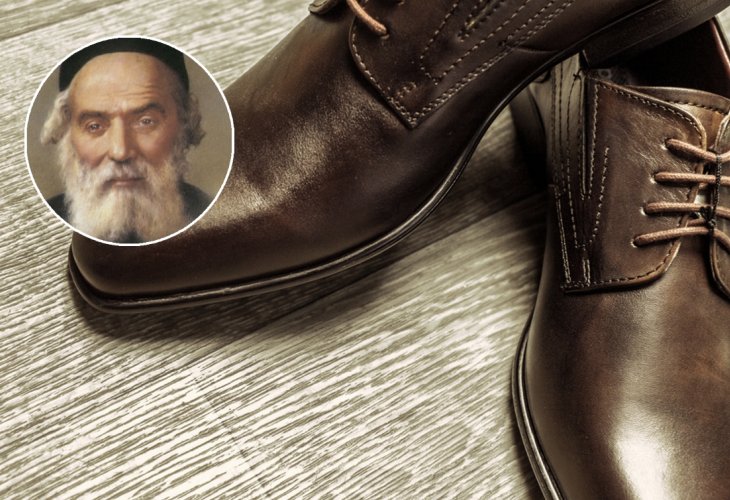Personal Stories
Shoes and Souls: A Lesson in True Impact
A small question from a great schola reveals the deep power of helping others.
 Circled: The Chofetz Chaim (Background photo: shutterstock)
Circled: The Chofetz Chaim (Background photo: shutterstock)Rabbi Yitzchak Rosenthal, who directed the “Midrash Bnei Zion” kollel (Torah study center), once came to speak with the Torah leader Rabbi Isser Zalman Meltzer. He explained that his financial situation had recently improved, and he was considering stepping away from his role managing the kollel so he could return to full-time Torah study.
Rabbi Isser Zalman, as always, listened with full attention. Then he said, “You should do what you feel is right—but before you decide, let me tell you a story.”
He began:
There was once a dedicated Jew who spent several years working as a fundraising emissary for the Slutsk yeshiva. Over time, the long days of walking and the constant pressure began to wear him down. It became harder for him to pray with concentration. Even during davening (prayer), his thoughts would wander to donors and financial worries, and he felt a growing distance from his learning. Eventually, he decided to step away from the role and become a rabbi in a small village. What he really longed for was to return to the peaceful, focused spiritual life he once knew.
Instead of sharing his decision with me, he traveled to ask the Chofetz Chaim (Rabbi Yisrael Meir Kagan, one of the greatest Torah leaders of the last centuries).
The Chofetz Chaim listened to him kindly and said, “I bless you with success.” The man thanked him and began to leave. But just as he reached the door, the Chofetz Chaim called after him, “Tell me, do you happen to know how much a pair of shoes costs?”
The man looked surprised but answered, “It’s been a while since I bought new shoes, but I think they cost around such-and-such.”
He started to leave again, but once more, the Chofetz Chaim stopped him: “Do you know how much it costs a shoemaker to make a pair of shoes? And how much profit he makes?”
“I really don’t know,” said the emissary. “I’ve never been a shoemaker.”
Still, the Chofetz Chaim invited him to try estimating together. So, they stood and roughly worked out the shoemaker’s expenses and profits for each pair.
When they finished, the man turned to leave—but again, the Chofetz Chaim called him back: “Tell me, are all shoes made by hand, or are some made in factories too?”
“There are both,” replied the man.
“And which are more expensive?” the Chofetz Chaim continued.
“The hand-made ones cost more than factory-made ones,” the man replied.
“If handmade shoes are more expensive, shouldn’t the shoemaker be wealthier than the factory owner?” asked the Chofetz Chaim.
“No,” said the emissary. “The factory produces far more shoes than any shoemaker, so in the end, the factory owner earns more.”
The Chofetz Chaim smiled gently. “So listen carefully,” he said.
“If you’re thinking just of yourself—if you want to stop traveling and live a quiet life—it’s true that your mind will be clearer, your prayers more focused, and you may rise higher in your own Torah study. But if you look at your current work as something bigger than yourself—if you think about how many young men are learning Torah, how many prayers are said each day because of your fundraising—then you’ll realize your work as an emissary is helping far more than you know. The prayers and Torah of many people are in your merit.”
He concluded, “So yes, your individual learning and davening may feel deeper if you step away—but when you help others study Torah and grow in their spiritual lives, your reward is even greater. The merit of the many depends on you.”
This beautiful story, shared in On the Path of the Tree of Life, reminds us how even the daily struggles and seemingly simple roles we take on can carry deep meaning—especially when they support the spiritual growth of others.

